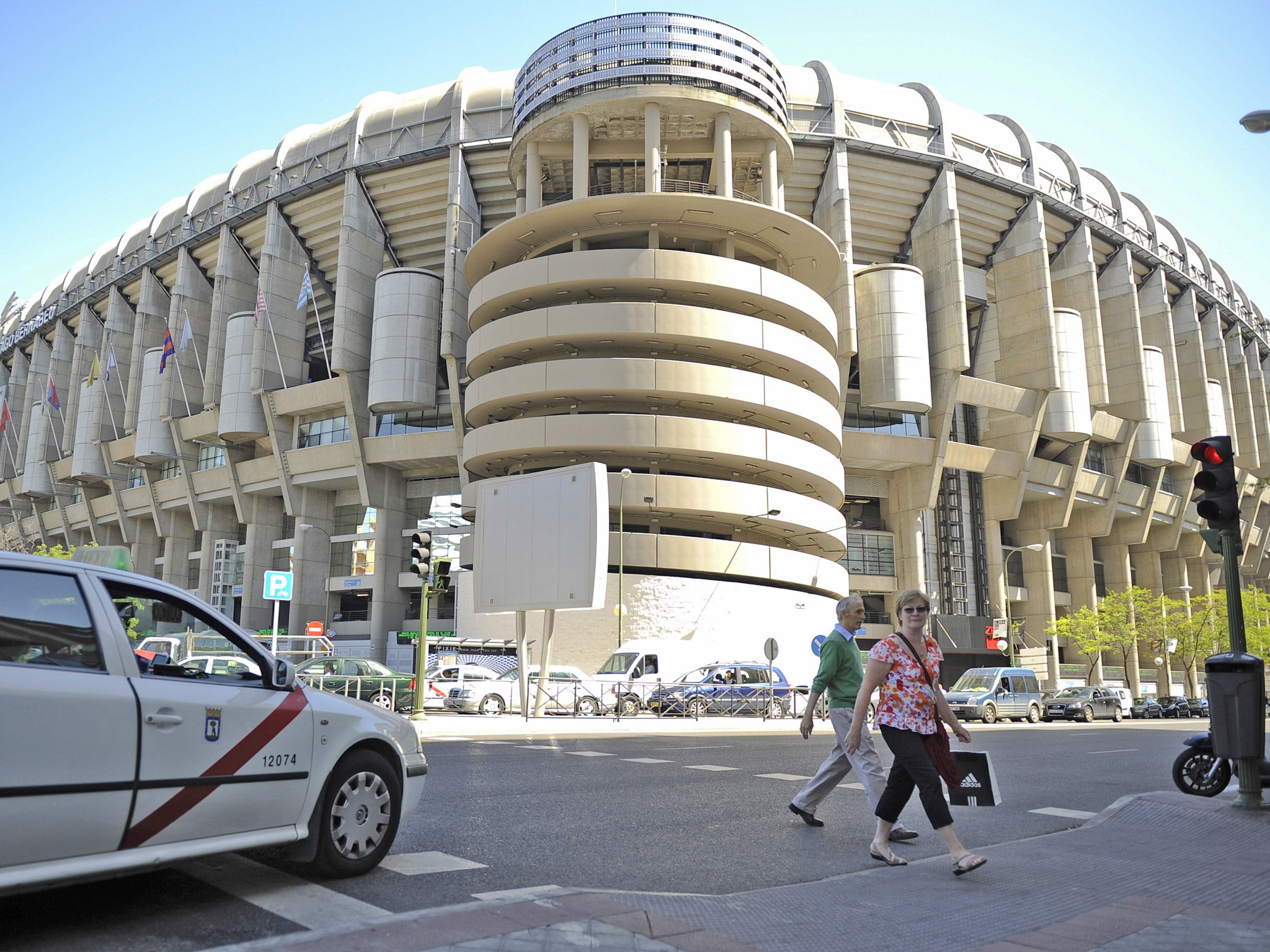European Commission under fire over €22m Real Madrid illegal state aid deal
Real Madrid alleged to have colluded with city council over price of land around Bernabeu

Your support helps us to tell the story
From reproductive rights to climate change to Big Tech, The Independent is on the ground when the story is developing. Whether it's investigating the financials of Elon Musk's pro-Trump PAC or producing our latest documentary, 'The A Word', which shines a light on the American women fighting for reproductive rights, we know how important it is to parse out the facts from the messaging.
At such a critical moment in US history, we need reporters on the ground. Your donation allows us to keep sending journalists to speak to both sides of the story.
The Independent is trusted by Americans across the entire political spectrum. And unlike many other quality news outlets, we choose not to lock Americans out of our reporting and analysis with paywalls. We believe quality journalism should be available to everyone, paid for by those who can afford it.
Your support makes all the difference.Pressure grew yesterday on the European Commission to reach a decision on their investigation over whether Real Madrid received illegal state aid in a land deal that will let them significantly improve the Bernabeu stadium's profitability.
The EC competition office confirmed The Independent's report that the Spanish club is subject to an investigation into a property deal with Madrid city council in which a piece of land acquired by the club for €421,000 was subsequently sold back to the council for €22.7m.
Instead of the payment, Real received land around the Bernabeu on which they plan to build a hotel and shopping mall complex as well as putting a roof on the stadium with lucrative naming rights.
Antoine Colombani, a spokesman for the EC competition office said: "The Commission is indeed examining the situation of Real Madrid as it does with similar allegations brought to its attention." He said the investigation is at a "preliminary" stage but it has been open since December 2011. After a complaint is made there is a two-month deadline for it to be dismissed, after which it becomes an investigation. The commission then has a year to reach a decision, in this case by February 2013. That timetable has now been exceeded by two months. Colombani said no decision had been made by competition commissioner Joaquin Almunia on whether there would be a "formal" investigation. Yet there is no two-track investigation process under EC guidelines.
The Independent has also learned that the EC is yet to reach a decision on another case involving the European Ombudsman. It relates to Spanish government legislation in June 1992 that all football clubs must become PLCs – with the exception of Real Madrid, Barcelona, Osasuna and Athletic Bilbao.
The exemption of these four clubs has conferred on them corporation tax advantages, and offered a degree of asset protection rights if the clubs seek to assert them.
It also means the clubs are able to have affiliate professional basketball teams. Both Real Madrid and Barcelona have basketball teams in the sport's Euroleague and hope one day to take advantage of NBA European expansion.
Valencia, who opposed the imposition of their PLC status, were debt free in the early 1990s. Now the club is effectively bankrupt and has been the subject of an illegal state aid investigation by the commission.
Join our commenting forum
Join thought-provoking conversations, follow other Independent readers and see their replies
Comments